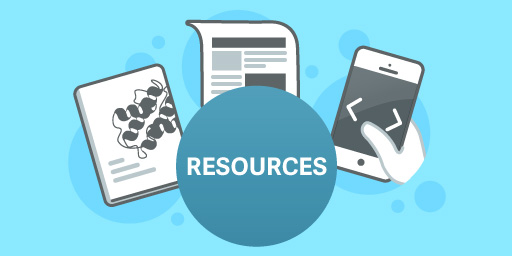Edited by Eric Lynne, Assistant Director of Galin Education
As educators, we are constantly on the search for the best academic resources. We mine these resources to inform our curriculums, keep up with the latest trends in the educational world, and become more effective teachers, tutors, coaches, and counselors.
Fortunately, the world is full of great academic and educational resources. Unfortunately, it is almost too full. Information overload is a real problem, especially in an educational landscape that is evershifting. A simple Google search for “Which college is right for me?” will populate over 500 million results.
Luckily for you, the staff at Galin Education have collectively sifted through many (though, admittedly, nowhere near half a billion) educational resources over the years, and through that work we have found some real gems. So instead of keeping them to ourselves, we want to share them with you.
Though this list is far from exhaustive, these are the resources we constantly return to and share with our students. Interestingly (and without even trying to do so) the list below spans many different types of media: databases, magazines, podcasts, books, and online learning platforms.
We hope that you find these resources as valuable as we have!
Brenda Ward, Director of College Counseling
This is a standardized set of data submitted and published by colleges in collaboration with The College Board, Peterson’s, and US News & World Report. Students and families can find this resource by Googling the college and Common Data Set (e.g. search for “Dartmouth Common Data Set” in Google). These Common Data Sets will tell you just about everything you need to know about a college from its admissions statistics to its student-to-faculty ratio. (Note: Brenda and Kelli also recommend CollegeData.com as a simpler alternative.)
For discussion of the big issues in higher ed admissions, I read Will Dix. He’s been on both sides of the admissions process (a college counselor at University of Chicago Lab School and Admissions Director at Amherst) in addition to several non-profit organizations advocating college access. He has published his own blog for many years and now writes a column in Forbes.
Colleen McGeehan, Director of Instruction
This is a great (free!) resource. Khan Academy has some materials geared specifically towards SAT/PSAT prep, but in general the material is also good for someone preparing for the ACT. Even outside of test prep, Khan Academy is something I often recommend to students who are looking for some additional help (particularly with math).
The Ringer, NYTimes, The Atlantic, Wall Street Journal, Smithsonian Magazine (there are many more!). Any website that has articles about subjects students are interested in is a “go to” for me. The best way to get better at the ACT Reading section is to read more, so any websites/articles that will encourage students to do that I love!
This website is where you sign up for official ACTs, but it also has some great resources like practice passages and question of the day. Not the most exciting stuff, but it is always a good idea to use the practice materials put out by the people who write the test.
Eric Lynne, Assistant Director
- Purdue Online Writing Lab (OWL)
A great resource for all of your writing tasks, from putting together a résumé and cover letter to compiling an MLA-formatted works cited page. I relied on this website to get through nearly every paper I wrote while in college and have continued to reference it in my educational career. - Hidden Brain Podcast from NPR
This podcast—which describes itself as “A Conversation of Life’s Unseen Patterns”—is a must-listen for anyone interested in following the trends and findings that help explain the world around us and how we function in it. Every episode is interesting in its own way, and a few have actually changed how I live my life (for the better, I should add). I’ve been listening since it’s first episode and haven’t missed one since!
Kelli Richards, College Admissions Counselor
This is a great site to search for local volunteer opportunities. You can sort by age, interest, and various other filters to find organizations and opportunities to get involved and gain new experiences.
This is a general database to help further research career and academic interests. It can be a good way to learn more about a field of interest as you start to think about college majors.
Scott Lutostanski, Director of Academic Consulting
This book is put together as a guide for parents that explains the executive functions. The book devotes one chapter to each of the eight skills: initiation, flexibility, attention, organization, planning, working memory, self-awareness and emotional regulation. It explains each skill, what it is, how adults can recognize and support their children, and strategies to implement.
- Mindset: The New Psychology of Success by Carol Dweck
This explains the two types of people in this world: those with a fixed mindset and those with a growth mindset. It explains that how we think about our talents and abilities can impact our ability to develop our skills and talents.




